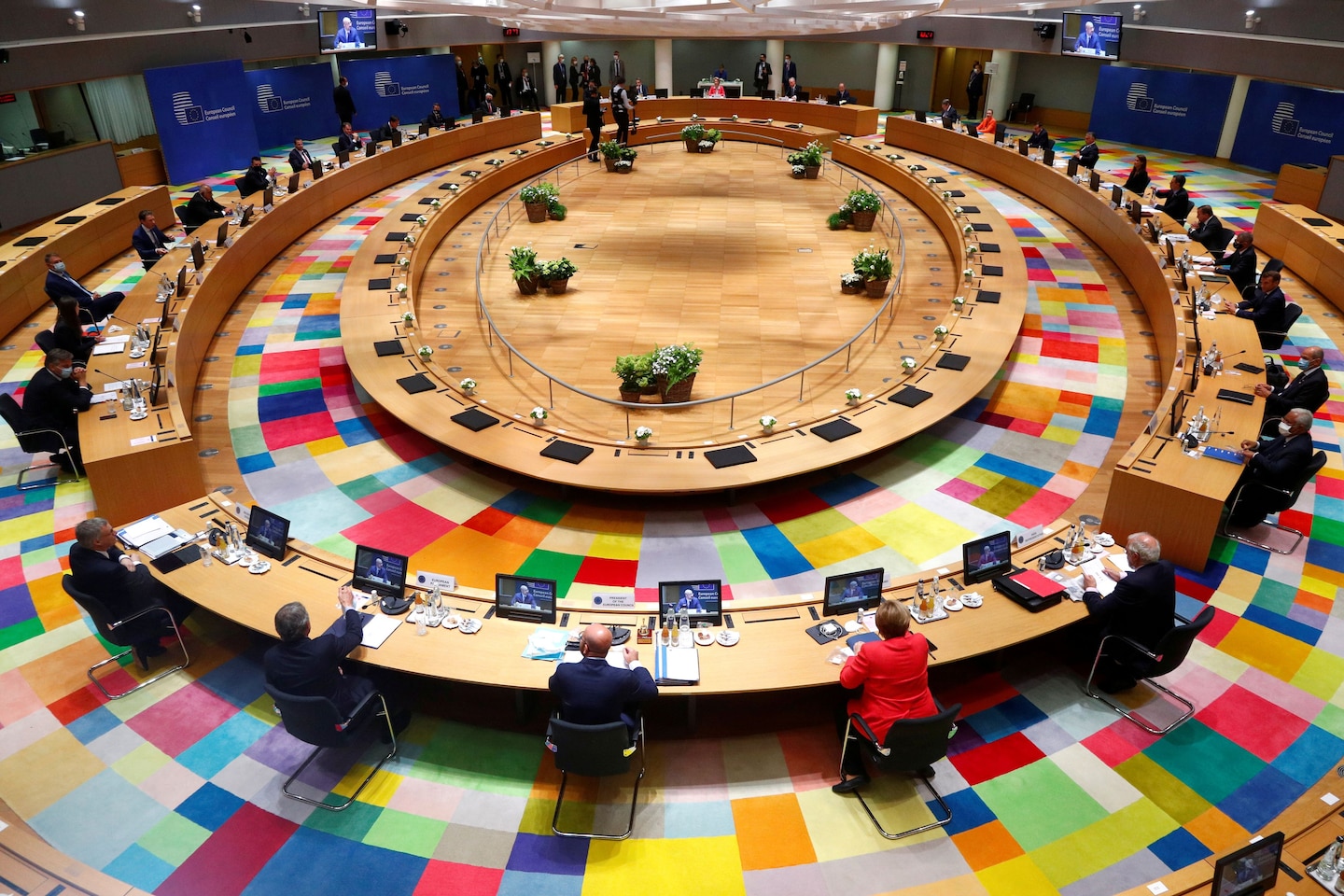Did Europe have its ‘Hamiltonian’ moment? Not exactly.

To muster these funds, the bloc will borrow against the financial markets, issuing E.U.-backed bonds for the first time. Calls for this collective pooling of debt obligations grew as it became clear that myriad European economies were about to be plunged into a potentially deep recession. Proponents of such measures liken them to Europe’s “Hamiltonian” moment, a reference to the U.S. Treasury Secretary Alexander Hamilton, who in 1790 engineered a political agreement on public borrowing that helped transform the loosely confederated 13 former colonies into a more tightly bound federal union.
The plan announced Tuesday in Brussels “takes the E.U. fiscal relationship to the next level,” noted Barron’s Daily. “Alexander Hamilton did something very similar when the fledgling U.S. government absorbed the debt of the 13 states after the revolutionary war with Britain.”
But the analogy only goes so far: “Unlike America’s treasury secretary in 1790, no one has proposed mutualizing EU countries’ legacy debts; not even the new common debt will enjoy joint-and-several guarantees. And the question of how the E.U. will pay back the sums borrowed has been left largely unanswered,” observed the Economist.
Nevertheless, leading European Union officials were exultant. “Europe now has a big chance to come out stronger from the crisis,” said European Commission President Ursula von der Leyen. “Today we have taken a historic step we can all be proud of.”
“Europe is united, Europe is present,” declared European Council President Charles Michel. “We have demonstrated that the magic of the European project works because when we think that it is impossible, there is a spring in our step thanks to respect and cooperation.”
A United States of Europe isn’t exactly on the horizon. To fully formalize the deal, national parliaments in the bloc’s 27 member states need to approve of certain technical requirements for it to pass, while the European Parliament, packed with an eclectic and occasionally eccentric mix of politicians, will have to ratify the overall E.U. budget.
The negotiations still showcased key divisions on the continent that echo the squabbles surrounding the global financial crisis a decade ago. “The main disagreement between the leaders of a handful of self-dubbed ‘frugal’ countries — the Netherlands, Sweden, Austria, Denmark and Finland — and their peers was about how much money to ship to hard-hit countries such as Italy and Spain and how much oversight donor countries ought to have over how the funds are spent,” my colleagues reported.
But the breakthrough this week came on the back of a new Franco-German understanding on the direction of European policy that was forged in recent months. “Under the deal struck Tuesday, Italy will receive the largest share of the stimulus money, with Spain receiving the second-largest,” wrote my colleague Chico Harlan. “Nearly as important as the result were the political dynamics: Though some northern nations wanted a smaller rescue package with tighter conditions, German Chancellor Angela Merkel and French President Emmanuel Macron pushed back, smoothing over a north-south divide that has plagued previous crises.”
This time, Germany didn’t play the role of stern northern disciplinarian and instead leaned on its wary neighbors to compromise with E.U. plans to reinvigorate slumping economies. “It’s an upgrading of supranational institutions’ role and power. It’s really upgrading them in a very significant way,” Rosa Balfour, the director of the Brussels office of the Carnegie Endowment for International Peace, told my colleagues.
“What will history remember? That after weeks of wobbling, the EU was much quicker and decisive to react to this crisis than the previous one,” wrote Benjamin Haddad of the Atlantic Council. “That the European Central Bank was not left alone holding the ship while Member States defended their short-term national interests.”
Other national interests did get in the way. Draft stipulations that tied access to funds with upholding the rule of law were waived, much to the delight of Poland and Hungary, whose governments have drawn the ire of Brussels for their illiberal attacks on independent institutions. Meanwhile, the “frugals” led by Dutch Prime Minister Mark Rutte ensured that hundreds of billions of euros in grants for countries such as Italy and Spain will be subject to an oversight mechanism that would allow individual member states to raise objections if a recipient country isn’t pursuing promised economic reforms.
That, some analysts fear, sets the stage for rancorous disputes down the road. “It’s an agreement that has the potential to redraw the way the European Union operates, especially in times of crisis,” wrote Mujtaba Rahman, head of the Europe practice for the Eurasia Group, a political risk consultancy. “But if it’s not handled carefully, the provisions it contains also risk undermining the bloc, poisoning relations between its leaders in ways that could ultimately do much more harm than good.”
For now, the mood is buoyant among those who believe in a more integrated Europe. “I want everyone to measure the distance traveled in two months. … In two months we were able to build a consensus,” Macron told reporters Tuesday morning. “Is it a perfect mechanism? No, but we were able to change something fundamental.”
Some European leaders are coming away from Brussels better positioned to beat back populists and Euroskeptics at home. Rutte’s bad-cop performance over the weekend was partly fueled by the center-right prime minister’s desire to check criticism from further to his right. Italy’s center-left coalition government, meanwhile, secured concessions from European partners that rival far-right nationalists had suggested would be impossible.
“The sovereigntists lose,” former Italian prime minister Matteo Renzi tweeted. “The agreement shows that a pro-European government is good for Italy.”
Read more:






